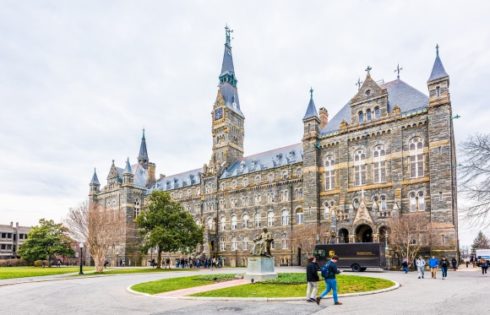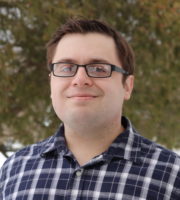
ANALYSIS
The University of Arizona recently hosted a seminar in which scholars and grad students discussed how “pro-migrant, anti-capitalist” outcomes can be achieved through research projects, in particular amid the COVID pandemic.
The strategy is called “solidarity as method,” which essentially refers to advancing the interests of marginalized groups.
During the seminar, scholars “play[ed] with reimagining research as a domain that proactively supports liberatory processes and outcomes,” according to its online description, which added the event took into account challenges the COVID pandemic has presented for fieldwork.
The university’s Center for Middle Eastern studies advertised the event as part of its “Fall 2021 Middle Eastern and North African Studies Colloquium Series.”
The College Fix was denied entrance to the online event, “Solidarity as Method: A Collaboratory Workshop,” which was hosted by the public university in mid-September.
The stated goal of supporting “liberatory processes and outcomes” basically means redirecting research methods and resources away from determining objective truths and instead toward elevating the interests of marginalized groups.
The seminar’s online description states that through “a series of group activities and exercises, as well as drawing from examples of pro-migrant, anti-capitalist, and anti-oppressive solidarity activism … we will play with reimagining research as a domain that proactively supports liberatory processes and outcomes.”
“We will also discuss the possibilities and challenges of ‘solidarity as method’ in terms of it being both a research or ethnographic object and as a methodological framework in centering decolonial, feminist, and anti-racist approaches to knowledge production.”
In other words, objective truth is secondary to promoting the progressive interests of marginalized categories under the guise of research.
The workshop was led by Professor Megan Carney, a “sociocultural and critical medical anthropologist,” according to her faculty bio.
Carney described the workshop in a statement to The College Fix.
It “allowed some faculty and students to talk openly about experiences in fieldwork and learn from one another,” she said via email.
“In particular, the attendees talked about the challenges of doing fieldwork during the pandemic. [The Center for Middle Eastern Studies] was glad to provide this useful opportunity to our colleagues and students.”
Carney is the faculty affiliate for the Center for Middle Easter Studies in addition to two other departments at the University of Arizona. “Carney draws from transnational feminist and decolonial epistemologies for designing reflexive and participatory research methodologies,” her bio states.
Pam Scott, a University of Arizona spokesperson, told The College Fix in an emailed statement that the “workshop was based on a decade of research with migrant-receiving communities in Sicily. In that research, ‘Solidarity as Method’ refers to situations in which local people and people of migrant backgrounds work together to address shared challenges.”
“The workshop enrolled graduate students and a few faculty to address how field-based researchers can study such collaborations, especially in a pandemic when the normal procedures for intensive on-site fieldwork are no longer possible and when new procedures for data collection and analysis need to be developed.”
Its description stated: “The Covid-19 pandemic and the public health emergency of structural racism have forced a long overdue reckoning for many in academia with respect to the structures of power and oppression that shape research while also posing practical challenges for carrying out research physically in ‘the field.’”
Individuals who signed up for the workshop received an email with instructions for an assignment to prepare examples of challenges they faced in the field as anthropologists.
“Workshop participants are asked to please bring some source of data from their research to share and be prepared to briefly speak about it. Examples include but are not limited to: a photograph, historical or archival document(s), a portion of a transcript (from interviews, etc.), field notes, or a short story about a challenging or impressionable research experience.”
The College Fix was denied access to the event.
Carney said in an email to The Fix that “participants will be sharing part of their research as part of a collaborative workshop that will not be recorded. They need to feel comfortable to do so and we would not be able to get everyone’s permission to allow you to sit in.”
ALERT: Check out our new Campus Cancel Culture Database!
IMAGE: Lamyai / Shutterstock
Like The College Fix on Facebook / Follow us on Twitter






Please join the conversation about our stories on Facebook, Twitter, Instagram, Reddit, MeWe, Rumble, Gab, Minds and Gettr.